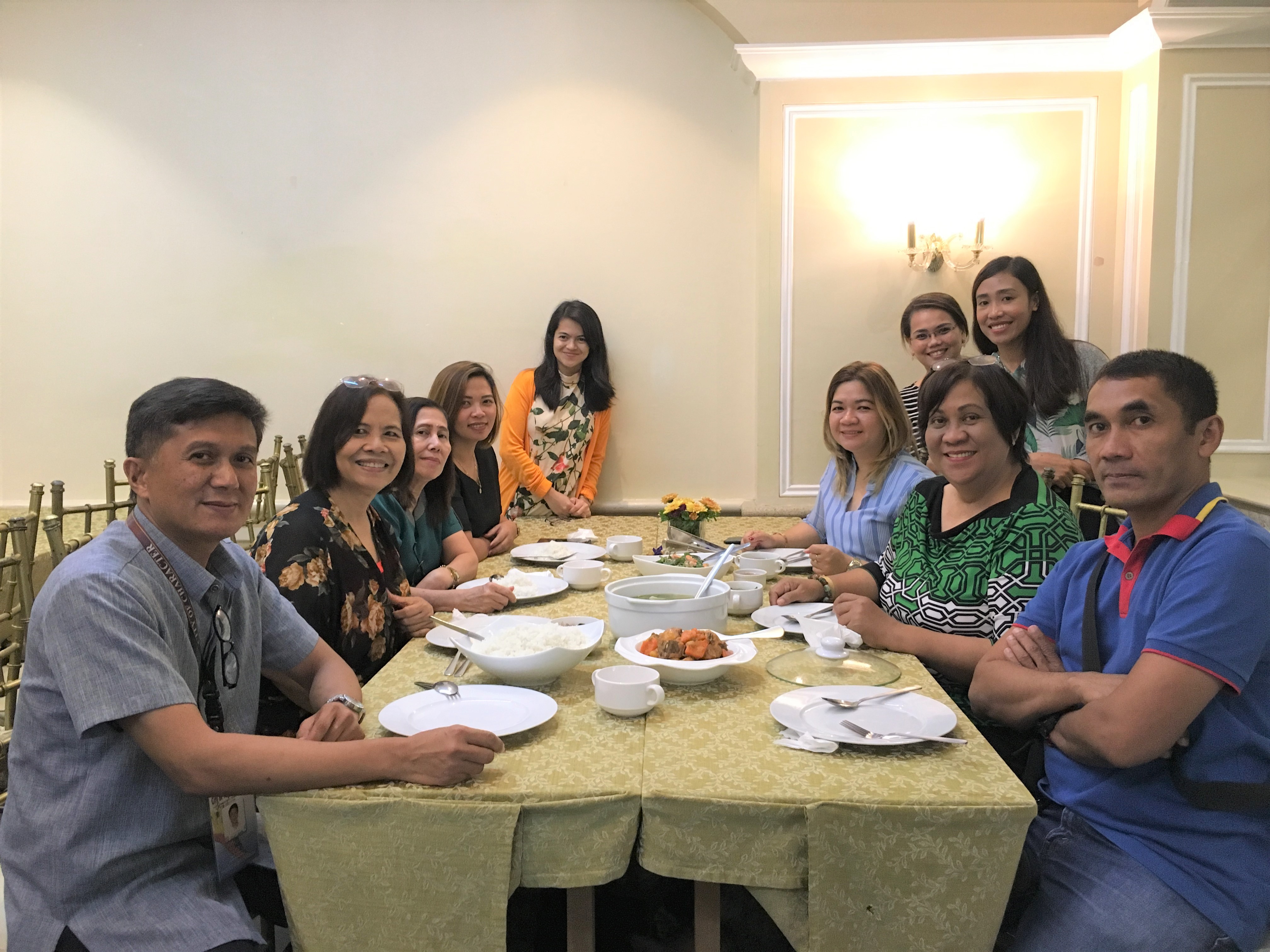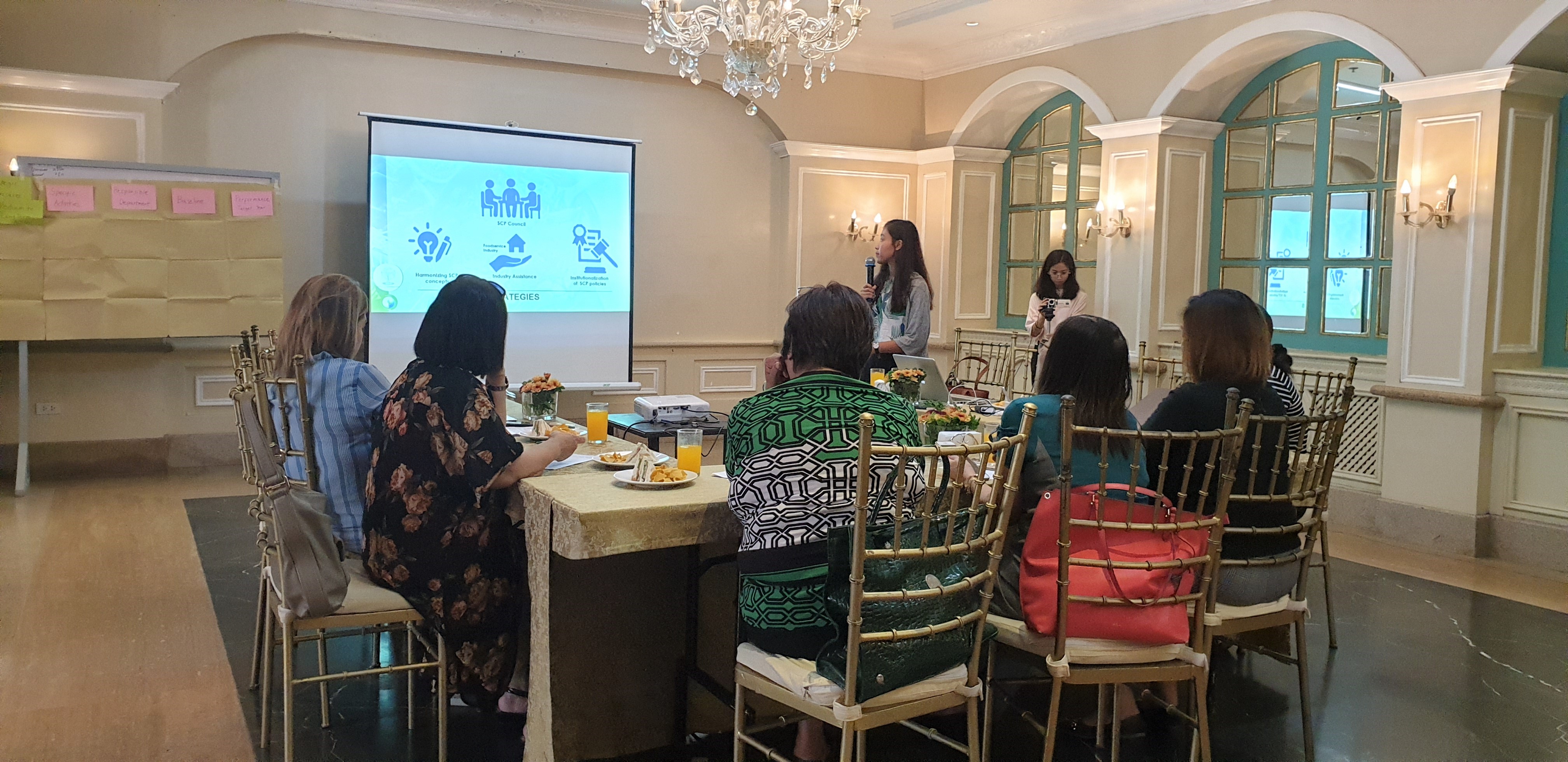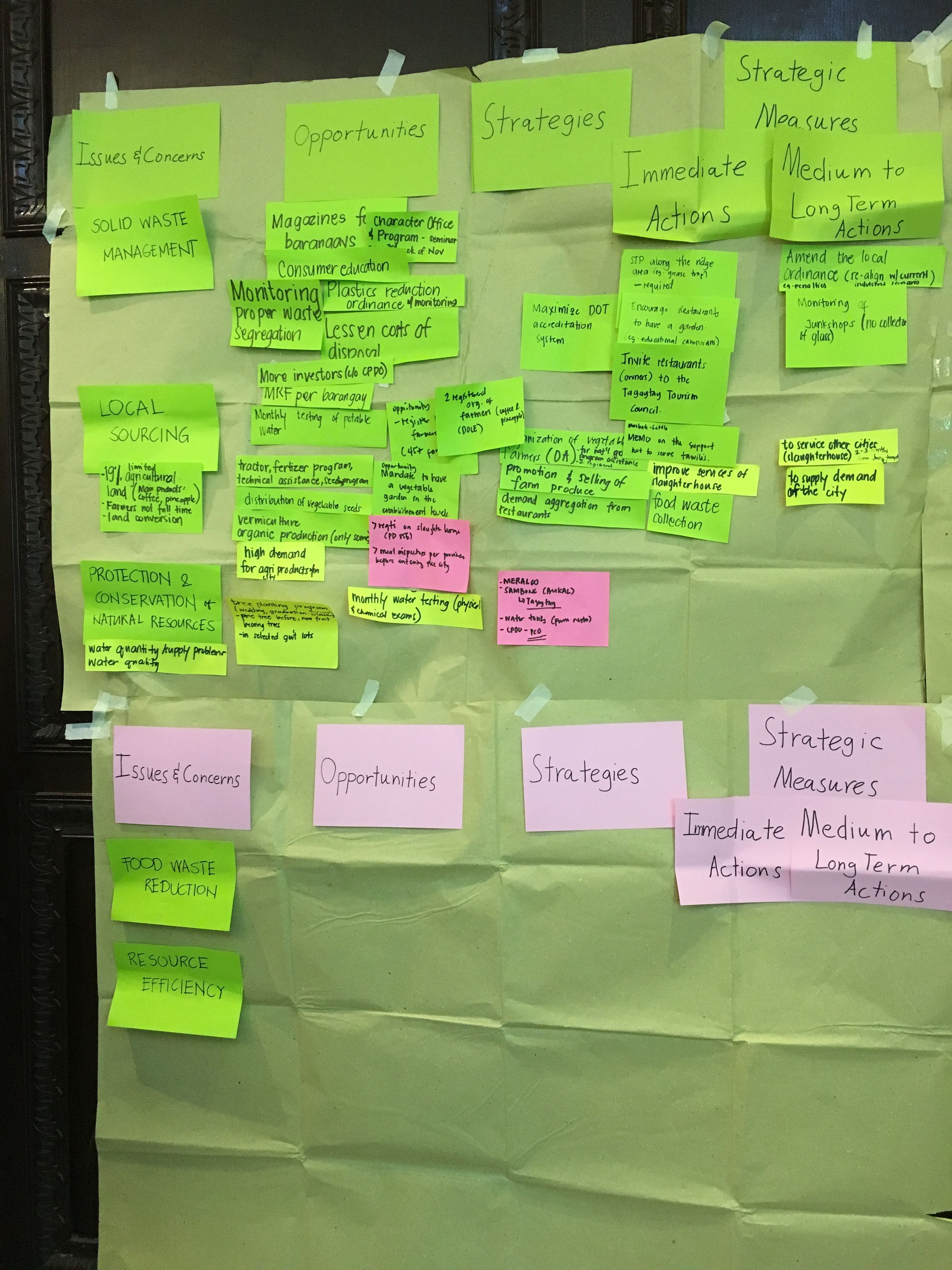WWF and PCEPSDI Conduct Policy Planning Workshop with the Tagaytay City LGU
June 2019

The Sustainable Diner project team of WWF-Philippines and PCEPSDI with representatives from the Tagaytay City LGU’s various offices: Tourism; City Health; Public Information; and Agriculture. Photo © PCEPSDI
Last June 11, 2019, World Wide Fund for Nature (WWF) Philippines’ The Sustainable Diner: A Key Ingredient for Sustainable Tourism project conducted a policy planning workshop in partnership with the Philippine Center for Environmental Protection and Sustainable Development, Inc. (PCEPSDI) and the Tagaytay City Local Government Unit (LGU) at View Park Hotel Tagaytay. Attended by representatives from the Tourism, City Health, Public Information, and Agriculture departments of the LGU, the goal of the workshop was to validate the action recommendations and strategies derived from the Action Planning Workshop conducted last year, which was meant to assist partner LGUs in integrating the Sustainable Consumption and Production (SCP) concept into their policies and plans, identifying key departments or units instrumental in handling each recommended strategic action.

Diana Sadili, PCEPSDI’s Project Officer for The Sustainable Diner project, sharing strategies on how the principles of Sustainable Consumption and Production can be implemented with the help of the Tagaytay City LGU. Photo © Alexa Jeanne Lasch / WWF-Philippines
Diana Sadili, PCEPSDI’s Project Officer for The Sustainable Diner project, gave a quick run-through on the project action recommendations and strategies, which were consolidated from inputs gathered from the Action Planning Workshop in order to set the expectations for the policy planning workshop. Held last September 24-25, 2018, the Action Planning Workshop helped define the medium- and long-term strategic goals of specific national and local government units on the implementation of SCP in the food service industry, as well as to integrate SCP principles into local and national policies and plans. Four classifications were presented for the gathered recommendations and strategies: the creation of an SCP council; the institutionalization and harmonization of SCP concepts; the adoption and implementation of SCP practices and policies; and the development of a support system for the food service industry’s transition to SCP compliance

Part of the output produced by representatives from the Tagaytay City LGU during the Policy Planning Workshop. Photo © PCEPSDI
As a tourist destination known not just for the breathtaking view of the Taal Volcano but also for the various gastronomic experiences it offers, Tagaytay City has been actively promoting farm tourism as a way to promote sustainable food systems in the area. With this major LGU initiative in mind, the presented action recommendations and strategies were assessed by the Tagaytay City LGU representatives, giving specific importance on how these can be improved and implemented through local policy-making and governance. With the help of the workshop, Tagaytay City LGU representatives were able to localize the consolidated challenges and opportunities shared during the Action Planning Workshop by stakeholders from the food service industry, academe, and other civil society organizations. They took into account their own style of governance as they further refined the action recommendations and strategies, deciding on possible delegation of the roles and responsibilities amongst the various LGU offices together.
The outcome of the policy planning workshop will be further synthesized until a revised batch of action recommendations and strategies, specifically for Tagaytay City, can be presented and implemented with the help of the LGU’s different offices.
The Sustainable Diner project, under WWF-Philippines’ Sustainable Consumption and Production, is part of the International Climate Initiative (IKI). The Federal Ministry for the Environment, Nature Conservation, and Nuclear Safety (BMU) supports this initiative on the basis of a decision adopted by the German Bundestag.
